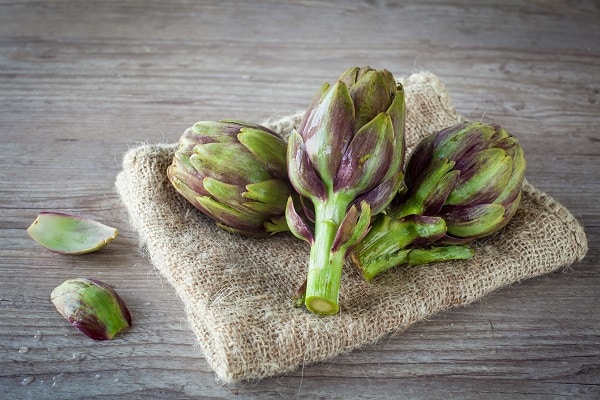If you are vegan, you know that getting enough protein in your diet can be tricky, especially if your diet is mostly vegetables. But that doesn’t mean it is impossible! There are more options than you might think! This post will look at some of the best vegetable sources of protein. So read on if you want a new way to add more protein to your diet or learn about vegan-friendly protein sources!
Contents
Why Protein Is An Essential Nutrient
Proteins are essential nutrients that play a vital role in the human body. They are necessary for the growth and repair of tissues, the production of hormones and enzymes, and the transportation of nutrients throughout the body. Proteins are also a significant component of the immune system, helping to protect the body from infection and disease. The body needs protein to maintain its structure and function, and severe health problems can occur without enough protein. That’s why consuming various protein-rich foods daily, whether through plant-based sources like vegetables or animal products like meat and dairy, is crucial.
Avocado

Many people think of avocados as a high-fat food, but they contain more than 20 different vitamins and minerals. Avocados are also a good source of fiber and protein. In addition, avocados are one of the few fruits that contain all nine essential amino acids, making them a complete protein. Because of their high nutrient density, many people call avocados a superfood. Studies have shown that avocados can help to lower cholesterol, reduce inflammation, and prevent cancer. They also improve heart health and boost brain function. So, next time you’re looking for a nutritious snack, reach for an avocado. You’ll be getting more than just a dose of healthy fats – you’ll be getting a powerhouse of nutrients that can benefit your overall health.
Corn

Most people think of corn as a starchy vegetable, but many don’t realize that it is quite high in protein. One cup of corn provides about 4.6 grams of protein, a staggering amount for a vegetable. One of the reasons corn is so high in protein is that it contains all of the essential amino acids that our bodies need to build new proteins. Corn is also a good source of fiber and vitamins, making it a nutritious addition to any diet. While it’s best to eat fresh corn, canned or frozen corn can also be a healthy option. You can incorporate corn into many dishes, from tacos and salads to soups and stews. Plus, corn is easy on the wallet, making it an affordable way to boost your overall protein intake.
Mushrooms

Though people often overlook them, mushrooms are a surprisingly nutrient-rich food. In addition to being a good source of fiber, vitamins, and minerals, mushrooms are also an excellent source of protein. Surprisingly, mushrooms contain more protein than other vegetables, including broccoli and spinach. One cup of cooked mushrooms provides around 4 grams of protein, similar to the amount found in one egg. Furthermore, the protein in mushrooms is especially easy for the body to absorb and use. For these reasons, mushrooms make an excellent choice for anyone looking to increase their protein intake. So when you’re at the grocery store, remember to pick up a few packages of mushrooms. Then add them to your favorite recipes or enjoy them on their own to boost your protein intake and improve your health.
Kale

Kale is a nutrient-rich leafy green vegetable packed with vitamins, minerals, and antioxidants. It is also a good source of protein, with one cup of cooked kale providing about 3.5 grams of the nutrient. This makes kale an excellent option for vegans and vegetarians looking to increase their protein intake. In addition to being high in protein, kale is also high in fiber, which can help to promote a healthy digestive system. Additionally, the vitamin C content in kale helps to boost the immune system, and the iron content helps to prevent anemia. Kale is a versatile vegetable you can enjoy cooked or raw, making it a perfect addition to any meal. And if you’re looking for a protein-packed snack, try blending kale into a smoothie or making kale chips. With so many health benefits, there is no excuse not to eat more kale!
Artichokes

Despite their prickly exterior, artichokes are a very nutritious vegetable. They are incredibly high in protein, providing almost 5 grams per cup. In addition to protein, artichokes contain fiber and antioxidants, making them a great choice for anyone looking to improve their overall health. For example, artichokes help reduce cholesterol and prevent heart disease. Plus, they contain high amounts of vitamin C and folate, which help support the immune system. When cooking with artichokes, choose fresh ones with tightly-closed leaves. To prepare an artichoke for cooking, pull off the outer leaves and trim off the stem. Then, boil or steam the artichoke until it is tender. You can eat the heart of the steamed artichoke whole, remove it and dip it in a sauce or vinaigrette.
Green Peas

Green peas are a humble little legume that people often overlook, but they are a nutritional powerhouse. Not only are they a good source of fiber and antioxidants, but they are also one of the highest plant-based protein sources. One cup of cooked green peas contains about 9 grams of protein, which is huge compared to other vegetables. That’s more than twice the amount found in a comparable serving of rice. And unlike many other plant-based proteins, green peas are a complete protein, containing all the essential amino acids your body needs. They can be a bit intimidating if you haven’t prepared green peas before. However, you can enjoy them in various ways – try boiling or steaming them and then adding them to soups and stews, mashing them and serving as a side dish, or throwing them into salads for an extra crunch.
Eat More Vegetables That Are High In Protein!
Whether you are following a vegan or vegetarian diet or simply increasing your protein intake, many different vegetables can help. From the high-protein avocado to the nutrient-rich artichokes and green peas, there is a wide variety of healthy vegetable options. So why not add some veggies to your diet today and start reaping the benefits? They could be the key to hitting your protein needs without eating animal products!


